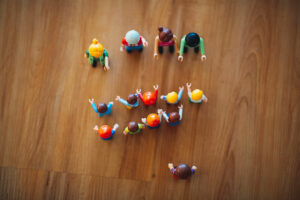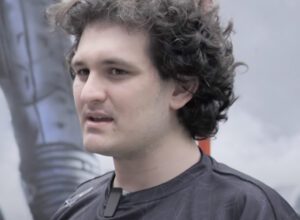Let’s do this, Boomer

Sometime in 2020, I heard about this seemingly benign phrase “Ok Boomer!” As it goes these days, I immediately searched what this phrase was all about on Google. I discovered that “OK Boomer” was a new expression, a meme, that went viral on social media. It was a reaction of the millennials and GenZs to a video of a man declaring, “The millennials and Generation Z have the Peter Pan syndrome, they don’t ever want to grow up.” The meme expressed the younger generations’ frustration over what they feel is the Baby Boomer generation’s refusal to accept accountability for the wrong choices and decisions they have made in the past and how these continue to hurt societies today. The expression is blasé but cutting; one blogger described it as “the digital equivalent of an eyeroll.”
Being at the tail-end of the Boomer generation myself, I’ve been pondering a lot about whether or not I have contributed enough to make this world a better place to live in for my children and my future grandchildren. Time is moving so fast, and I am reminded again that I really will never know when my time is up. Somehow, the pandemic has amplified this feeling and made me more mindful about how every precious moment must be spent.
I would like to believe that, like me, most parents worry about the future of our children, especially in a world that is becoming more uncertain. The pace of change and the level of distortion of reality in the world are far more difficult to decipher these days. Technology has accelerated access to all kinds of information and knowledge, which in turn made the spread of both the truth and the lies exponential. As a consequence, life changing decisions and choices demand deeper discernment. I have also come to accept that this emerging Fourth Industrial revolution is no longer the world that my generation is very familiar with.
This new reality has reinforced a forgone conclusion of mine that what may have worked during our time growing up, will no longer work today and much less in the future. Our preconceived ideas of the jobs or entrepreneurial ventures that we think our kids must consider might not even be professions or businesses in the near future. I still remember how parents my age would limit the time kids could play video games so they could focus on their schoolwork. Today, playing video games can be a very lucrative profession.
Certainly, I am not the only one who is experiencing how family dynamics have changed at home, especially due to the lockdowns during the pandemic. Suddenly, the digital world has become a more integral part of day-to-day living, which is more the domain of my children.
The younger generation is indeed more at home with this more hi-tech driven world. Many of the most life-changing innovations today that have disrupted age-old practices are traced to young people who created digital platforms and applications — some of them even become instant billionaires.
What this tells me is that it is imperative that my generation engage with the younger generation with more openness to the changed dynamic of intergenerational relations. It is passé to think that the older generation can still impose things on the younger generation. While some of them will still give due respect and begrudgingly do what their elders tell them, the youth today will still likely find ways to do what they are most passionate about. The flip side to this is that some of them will just surrender to the imposition, retreat to their little corner, and end up not finding meaning in their lives.
I go back to the question of what else I can still realistically do in the sunset of my life. Even prior to the pandemic I had already been grappling with the challenge of how we can still transform what experts would refer to as a more Volatile, Uncertain, Complex, and Ambiguous (VUCA) world.
Sometime in 2019, I engaged a small crew of some of the brightest and most mission-driven millennials and GenZs in our country. We undertook research and consulting projects designed to understand the systemic nature of some of the wicked problems in Philippine society and to consequently mobilize collective action that can transform the current ecosystems. At the core of our emerging practice was the belief that “change at scale happens when we work together” and that the real challenge is how we can “make ‘together’ work.”
The following year, despite the challenges brought about by the pandemic, we worked remotely most of the time and managed to look into issues around mobilizing private sector investments in the Sustainable Development Goals (SDGs), inclusive mobility, delayed birth registration, open data for empowerment, public health investment, and hunger.
It was a new working arrangement that saw us extending hours of work because we suddenly seemed to have more time on our hands. But it was also such a comforting experience to feel the genuine concern of each member of the team towards each other. There was a constant checking on each other’s health and wellbeing as well as that of each other’s families. There was a lot of hard work, but it was balanced by a very nurturing relationship.
That’s why, all things considered, 2020 was one of the most productive years I have ever had. It was so inspiring to see how our young team boldly and confidently engaged leaders in government, business, and civil society, and managed to rally different stakeholders towards common goals and initiatives.
Since then, we agreed to formalize our partnership under the umbrella of WeSolve Foundation, Inc. Other than myself, we’ve managed to invite other Boomers and young leaders to be trustees of this newly formed foundation. Together, we aspire to establish collaboration platforms in an atmosphere of humility, openness, and respect across generations where real listening, constructive conversations, and collective actions can be cultivated.
This cross-generational effort is reflected in the way WeSolve works: with the youth already taking on leadership roles and mobilizing collective action to systemically address pressing societal problems, and then the more senior generation serving as advisors, enablers, funders, and mentors. We continue to build from the gains of past successes, but also humbly admit the past mistakes that need to be rectified.
This deliberate outreach to the younger generation is grounded on the thought that it is likely that our generation may not see in our lifetime the better world we envisioned in our younger days. So, if my generation wishes to see our life’s work not going to waste, we really need to find others who still have a longer horizon in life to share our causes and continue what I am certain we will not finish.
One of our younger colleagues likened our intergenerational collaboration in WeSolve to cathedral building when we were struggling to explain to others what it is that we are trying to do. Still undergoing construction, the Sagrada Familia Cathedral of the late Antoni Gaudi leaves one breathless even in its uncompleted form. Gaudi proclaimed, “There is no reason to regret that I cannot finish the church. I will grow old but others will come after me. What must always be conserved is the spirit of the work, but its life has to depend on the generations it is handed down to and with whom it lives and is incarnated.”
Indeed the most difficult problems of our society these days cannot be solved overnight — not even in a few years. It will need generations to take it on. Fortunately, we are still given time to build it better than when we entered it.
For the younger generation, it will help to seek the wisdom of the elders that is rooted in years of real life experiences of engaging our world. Learn from their lifelong lessons shaped by their successes and failures and their journey along the way.
For my generation, let us begin to listen to our youth and seriously engage them. They are very informed and capable beyond our imagination. Let us invest our time, talent, and treasure in their dreams, their passions, their missions, and their tireless energy to bring all these to reality.
But most of all, let us all discern together with them the choices that we will be making moving forward. What remains unchanged across generations is the never ending battle of doing good vs. doing bad. There will still be those that will choose to create weapons that destroy. Let us be the ones that will choose to develop tools that will build.
Let our inter-generational callout then be, “Let’s do this, Boomer.”
Rafael Lopa is the principal convener of WeSolve Foundation.




